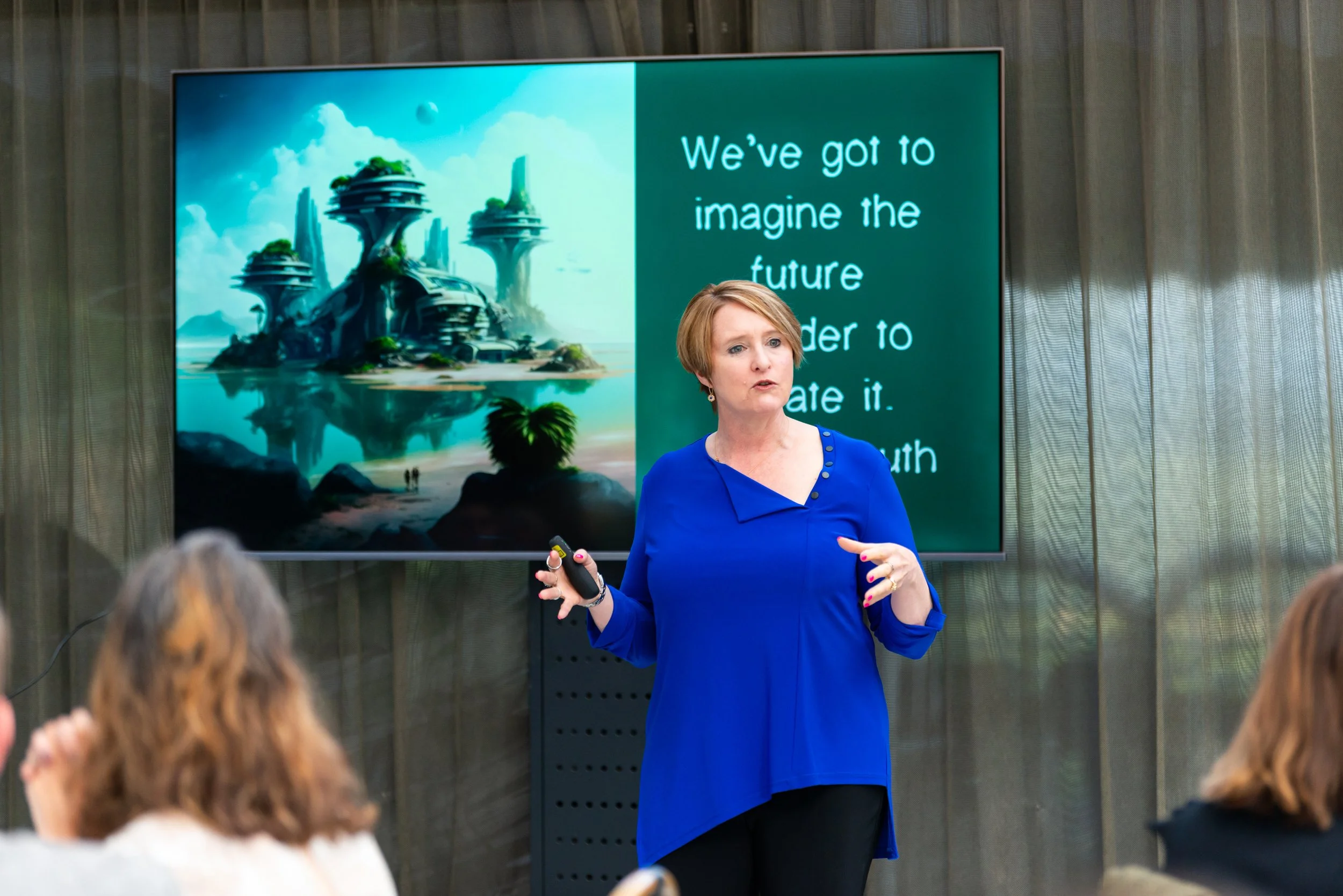The world is full of people telling us what to do better in leadership. We’ve got command and control leadership, situational leadership, emotional intelligence leadership, transformational leadership, collaborative leadership, agile leadership, neuroleadership, connected leadership, limitless leadership, boundless leadership (yup - that one’s mine), and more!
Learn by doing: a key leadership principle
For thirty years I’ve run experiential programs that focus on this key principle: learn by doing, with reflection.
Whether you undergo training, hire a coach, work with a mentor, watch videos and TED talks, read articles, blogs, and books, the only surefire way to make use of any of this knowledge is to apply it, and then reflect on what happened.
But how do we do reflection?
“True wisdom comes to each of us when we realize how little we understand about life, ourselves, and the world around us.” Socrates
I love this insight from Socrates. One of the reasons he has remained an important sage for us over 2000 years since he walked the planet was his insatiable curiosity, and his intellectual humility.
He kept asking questions, never assuming he had it all figured out.
I am also inspired by Derek Sivers. After ten years of blood sweat and tears setting up his business CD Baby, he sold it for $22 million. Suddenly unhampered with the need to work ever again, he started asking himself questions:
What am I going to do next?
What should I do with $22 million dollars?
How can I be smart about this?
Based on what values? Altruism? Hedonism? Conquest? Legacy? Personal growth?
He spent the next ten years asking himself questions and answering them in a private journal, and sharing them on his blog. His book of these reflections is coming out soon. (can’t wait!)
The practice of interrogating experience, and then interrogating one’s thoughts on those experiences, is the key to growing as a leader.
I’ve kept a journal since I was 9 years old. Not always consistently, and not always a useful thing. I re-read the notes I kept as an angst-filled teenager and decided to burn them all as an important gesture to abandon self-indulgent woefulness. It was liberating.
Journalling for leadership reflection
This is what I do now:
Success journal: I record daily my achievements of the day. These include both outcomes (goals achieved) AND process accomplishments (activities that don’t bear immediate results in terms of measurable outcomes, but nudge me forward. Things like ‘wrote a blog’, or ‘made notes on a book’, or ‘sent birthday cards’). The journal has far more process notes in it than the occasional ‘goal achieved’ note. But that’s the point. Celebrating activity that moves you forward, keeps you moving forward.
Habits journal: I record my daily practices (as per James Clear’s Atomic Habits). This helps keep me aware of what trajectory I’m on and if I am actually living up to my intentions. Visibility creates accountability. And momentum.
Reflection journal: I write about my life, my thoughts, my learning. I try on different reflective practices. I’ve followed Mark Divine’s Unbeatable Mind suggestions, Sandy Grason’s topics from Journalution, and other random provocative questions I discover on the internet. Right now I am exploring Dan Millman’s Everyday Enlightenment: The 12 Gateways to Personal Growth.
I also jot down questions that surface for me about what I’m reading and researching.
Here’s a sampling of questions I am currently pondering:
Does a more inclusive worldview automatically lead to more compassion?
Are there any examples of where nationalism and protectionism is actually good for a country?
Do we need minimum life conditions in order to be compassionate towards others?
How does language shape thoughts and connections?
How can we overcome the programming from our parents?
How do I act with more kindness and compassion?
How can I be a better human being?
How do we develop wisdom?
There is no perfect way, time, or methodology to journaling. What is important is that you do it, regularly, as a way of thinking about your world, and your thinking about your world.
Have you got a journaling practice that works for you? How has it helped? Please share in the comments!
***
Related Articles:
End of Year Review and Planning Tool
How to get out of a life-numbing slump
Mid-year leadership reflection questions
Leadership success with this simple habit
***
About the author, Canberra leadership expert Zoë Routh:
Zoë Routh is one of Australia’s leading experts on people stuff - the stuff that gets in our way of producing results, and the stuff that lights us up. She works with the growers, makers, builders to make people stuff fun and practical.
Zoë is the author of four books: Composure - How centered leaders make the biggest impact, Moments - Leadership when it matters most, Loyalty - Stop unwanted staff turnover, boost engagement, and build lifelong advocates, and People Stuff - Beyond Personalities: An advanced handbook for leadership. People Stuff was awarded Book of the Year 2020 by the Smart WFM Australian Business Book Awards.
Zoë is also the producer of The Zoë Routh Leadership Podcast.

